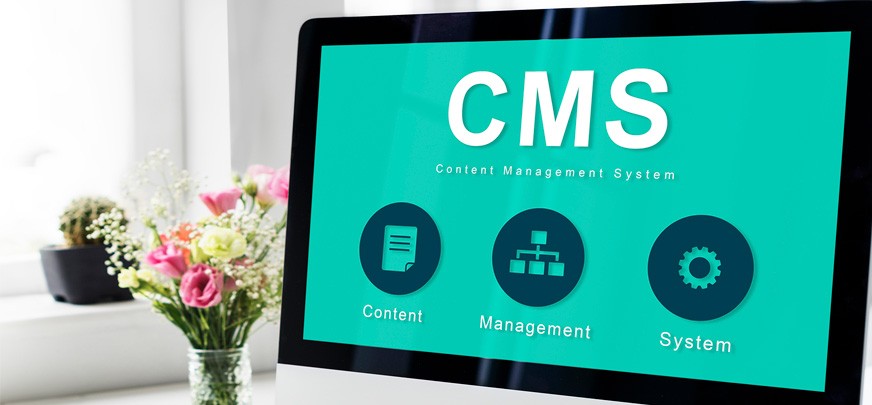The Dark Side of WordPress: Unmasking the Drawbacks for websites Owners

Introduction
In the digital landscape, selecting the right platform for your business website is a critical decision. Many turn to WordPress for its apparent ease of use and widespread popularity. However, a closer look reveals that this choice may not be the ideal solution for everyone.
Whats wrong with WordPress?
The world of WordPress (WP) sites is vast, forming an entire web industry that occupies a significant part of the market. However, owners of such sites often face well-known issues such as vulnerabilities to attacks, slow performance, and viruses.
Like any other system, a WP site can be high-quality if it is created by a professional and properly maintained by another professional who keeps an eye on security, updates, and plugins. The problem is that only a small percentage of WP developers are truly experts who prioritize quality. Even if the site was initially built well, there's no guarantee that its maintenance and development will be of the same high standard.
WP development often attracts students, and even people from other professions, because WP appears to be a simple builder where creating a site is quick and easy. However, ensuring quality and security is challenging, and typical clients often cannot verify the quality of the work done inside.
It is common for WP to be installed, along with themes and plugins, and the job is considered done. The client then turns to platforms like Upwork to find a cheap freelancer for the next task, and each freelancer leaves their mark and clutter in the system. After a few years, the site turns into a "dumpster" inside, although it might still look decent on the outside. The longer this development history continues, the harder it becomes even for a professional to clean up the internal mess. While this problem is inherent in all systems, it is particularly noticeable in WP.
The Security Vulnerabilities of WordPress
WordPress is one of the most popular content management systems (CMS) in the world, powering over 40% of all websites. However, its widespread use has also made it a prime target for hackers. Numerous vulnerabilities within WordPress itself, as well as its third-party plugins and themes, have led to large-scale website breaches, putting sensitive data and business reputations at risk.
Below are some of the most notorious WordPress security incidents that showcase the platform's inherent risks:
1. RevSlider Plugin Exploit (2014)
In one of the largest WordPress hacks to date, a vulnerability in the RevSlider plugin—a commonly used component in premium themes—allowed hackers to execute arbitrary code on websites. This exploit led to the defacement of thousands of websites and the spread of malware, highlighting how a single vulnerable plugin can lead to mass compromises across numerous sites.
2. REST API Vulnerability (2017)
In 2017, a critical vulnerability was discovered in the WordPress REST API, which enabled unauthorized users to edit or delete posts on vulnerable websites. More than a million websites were affected by this flaw, causing a surge in site defacements before WordPress quickly released a patch. This incident underscored the importance of timely updates and the potential danger of a flawed core feature.
3. WP GDPR Compliance Plugin Breach (2018)
The WP GDPR Compliance plugin, designed to help websites comply with the European General Data Protection Regulation (GDPR), became a backdoor for hackers in 2018. The vulnerability allowed attackers to gain administrative access to WordPress sites, which led to malicious redirects and the insertion of harmful code. Ironically, a plugin aimed at protecting data privacy ended up being a vehicle for exploitation.
4. File Manager Plugin Hack (2020)
A vulnerability in the File Manager plugin exposed more than 700,000 WordPress websites to attack in 2020. This exploit allowed hackers to upload malicious files without authentication, giving them full control over the affected websites. The scale and severity of this hack illustrated the risks posed by even widely trusted plugins if not properly secured.
5. XSS in WP Super Cache (2021)
The popular caching plugin WP Super Cache contained a Cross-Site Scripting (XSS) vulnerability, which allowed attackers to inject malicious JavaScript into websites. Although this vulnerability did not result in a mass breach, it highlighted the ongoing issue of XSS vulnerabilities in WordPress and the potential harm they can cause to both site owners and visitors.
6. Elementor Pro and WooCommerce Vulnerability (2023)
In 2023, a vulnerability affecting Elementor Pro, in combination with WooCommerce, exposed many websites to administrative access takeovers. The exploit allowed attackers to alter content and gain control of e-commerce sites, putting both site owners and their customers at risk. This incident once again demonstrated the dangers of combining popular plugins without proper security measures.
The Root Causes of WordPress Security Issues
Many of the vulnerabilities that have led to these large-scale attacks can be traced back to a few key factors:
- Outdated Plugins and Themes: Many WordPress users fail to update their plugins and themes regularly, leaving their sites exposed to known vulnerabilities.
- Core WordPress Updates: While WordPress regularly releases security patches, many users delay updating their sites, giving attackers an open window to exploit critical issues.
- Third-Party Plugin Reliance: WordPress’ modular design, which relies heavily on third-party plugins, significantly increases the attack surface. A single insecure plugin can open the door to widespread site breaches.
- Weak Security Practices: Poor password hygiene, lack of two-factor authentication, and other security best practices are often overlooked by WordPress users, making sites easier targets for attackers.
Target Audience
Who exactly is considering WordPress for their business website? Typically, newcomers to web development are attracted by its reputation for simplicity and accessibility. Let's delve into the pros and cons to help potential users make an informed decision.
Advantages of WordPress
- Ease of Use
WordPress boasts a user-friendly interface, making it accessible for those new to website development. The intuitive dashboard and straightforward setup appeal to beginners looking to establish their online presence quickly. - Wide User Base and Extensions
The vast community surrounding WordPress provides an extensive support network. Additionally, the abundance of themes and plugins allows users to customize their sites easily. This versatility is a significant draw for those seeking flexibility in design and functionality. - Availability of Themes and Plugins
One of the platform's strengths lies in its vast library of themes and plugins. Users can choose from a wide range of options to tailor their websites to their specific needs without extensive coding knowledge.
Drawbacks of WordPress
- Security Issues
Despite its popularity, WordPress is a prime target for hackers. Security vulnerabilities in plugins and themes can compromise websites, leading to data breaches and other cyber threats. Regular updates are essential, but even then, vulnerabilities persist. - Website Speed Performance
As websites grow in complexity with added plugins and features, the speed performance of WordPress sites can suffer. Slow-loading pages negatively impact user experience and can have detrimental effects on search engine rankings. - Dependency on Plugins
While the availability of plugins is an advantage, over-reliance on them can lead to issues. Some plugins may be poorly coded or become outdated, causing compatibility problems and potential site crashes.
Why Choose Custom Development on Laravel Over WordPress?
While WordPress is widely known for its ease of use and flexibility, it comes with certain limitations, particularly when it comes to performance, security, and customization for more complex projects. For businesses looking to build a website or web application that offers superior performance, enhanced security, and a tailored solution to fit specific needs, custom development on Laravel is an excellent alternative.
What Makes Laravel a Better Choice?
Performance and Speed Laravel, as a modern PHP framework, is designed to handle complex applications with ease. Its architecture allows for faster load times, streamlined database queries, and optimized resource management. Unlike WordPress, which often relies on multiple plugins that can slow down performance, Laravel is built to be fast and efficient right out of the box. This means your website will load faster, providing a smoother user experience and improving search engine rankings.
Custom Admin Panel With custom Laravel development, we provide a user-friendly, tailored admin panel that is designed specifically for your business needs. Unlike the often cluttered and complex WordPress dashboard, a custom admin panel on Laravel is streamlined, intuitive, and easy to manage. Whether you need a simple interface for content management or a more complex system to handle business-specific operations, the admin panel is designed to your exact specifications.
Enhanced Security Security is a growing concern for websites, and Laravel offers robust protection against common vulnerabilities like SQL injection, cross-site scripting (XSS), and cross-site request forgery (CSRF). While WordPress sites are frequently targeted by hackers due to the widespread use of third-party plugins, Laravel’s built-in security features and the absence of unnecessary plugins make it a far more secure platform for your business.
Scalability As your business grows, your website should be able to scale seamlessly. Laravel’s flexible architecture makes it easy to scale web applications, whether you’re adding new features, expanding your services, or handling increased traffic. With WordPress, scaling can be challenging due to plugin dependencies and performance bottlenecks. Laravel, on the other hand, is designed to handle large-scale applications without compromising performance.
Tailored Solutions Every business has unique needs, and with custom Laravel development, we build websites and web applications from the ground up, specifically tailored to your requirements. Unlike WordPress, which often forces users to work within predefined themes and plugins, Laravel allows us to create a fully bespoke solution that fits your exact business model and goals.
Conclusion
In conclusion, while WordPress may be suitable for some, it's imperative to weigh the advantages against the drawbacks. Security concerns, performance issues, and plugin dependencies highlight the need for careful consideration before committing to this popular platform.
If you’re looking for a more secure, high-performance, and scalable solution for your website or web application, custom development on Laravel is the ideal choice. With a focus on tailored features, superior performance, and robust security, Laravel provides the flexibility and reliability your business needs to thrive in the digital space.
Say goodbye to the limitations of WordPress and embrace the future of web development with Laravel.
Contact us today to discuss how we can build a custom solution for your business.
Our team specializes in creating reliable and secure websites using Laravel for small and medium businesses. You get a user-friendly CMS tailored to your needs, plus the freedom for your project to grow.
The best part?
TechNerds provide development of Laravel website at the same cost as a typical WordPress site!
Discover more about our Custom Web Development services here. Let's bring your online vision to life!




